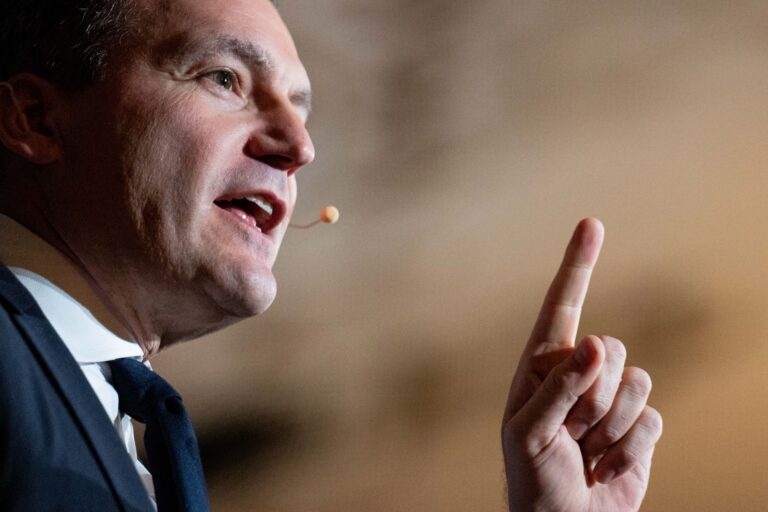TORONTO — As important as Canada’s AI industry is in itself, a critical part of AI and Digital Innovation Minister Evan Solomon’s job is getting people in far-flung sectors to use the technology.
That means AI in health, defence, government, agriculture and more, Solomon said. AI can help doctors see more patients by automating note-taking and scheduling, and improve surgery results, for instance.
It can be helpful in fields where workers might not take it up naturally and will need help. “We need to talk about adoption and skills,” Solomon said at The Logic Summit in Toronto on Monday.
Related Articles
Solmon said that he doesn’t want Canada to be “a farm team for the U.S.” or other countries, but that it was more important that Canadian people and businesses started using AI tools.
Widespread adoption, in turn, will depend on widespread trust in the technology, and figuring out how to establish that trust is a vital part of an impending new national AI strategy.
Solomon, Canada’s first minister assigned specifically to advance and oversee AI, named a task force in September to advise on that strategy, giving its members just a month to make recommendations on AI research, adoption and commercialization—including how to build an AI-ready workforce and make sure the technology’s various iterations deserve and gain public trust.
That last element is both delicate and crucial, Solomon said. “There are genuine concerns about AI running out of control. There are genuine concerns about job displacement. So we have to actually deal with that, with workforce and skills.”
He’s also said that the Liberals under Justin Trudeau focused too much on AI’s risks and dangers and not enough on its potential. Finance Minister François-Philippe Champagne was the face of a lot of that work in his previous job as industry minister. At the time, Champagne said that Canada would lead on AI by focusing on developing the technology responsibly.
That attitude was in keeping with warnings from venerated AI pioneers in Canada like Yoshua Bengio and Geoffrey Hinton, who regularly warn that AI could wipe humanity out.
Caution has slowed even the federal government’s own use of AI tools, its chief information officer Dominic Rochon said at a tech conference in Ottawa last week, to a degree Rochon considers a problem. There are certainly risks to keep in mind—like biased tools and models that invent falsehoods, he said—but “we’ve introduced a bunch of guidelines, a bunch of rules, and I think that’s put a bit of a chill on people,” Rochon said.
As an indication of how intensely the current government wants to change that, it will use AI to process some of the 11,000-plus responses it got to its public survey, Solomon said Monday, and will likely release the resulting strategy early in 2026.
Read more from The Logic Summit 2025 here.



